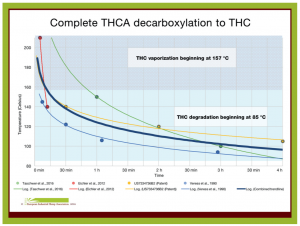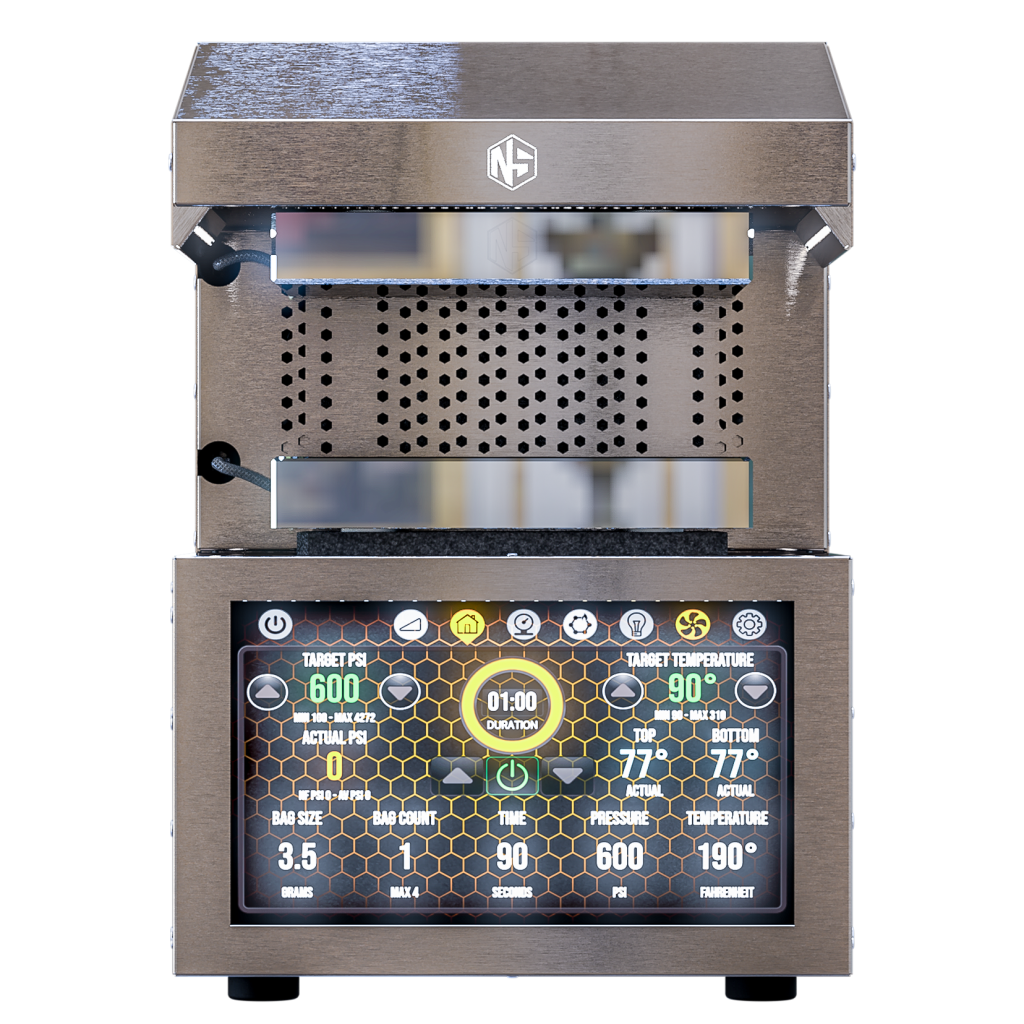THE ROSIN TECHNIQUE
The term rosin has been around for quite some time, yet the process is relatively new to the cannabis community. Did you know that rosin (or resin) originated as a method of making a product used to lubricate violin bows? In this technique, high temperatures are applied to pine resin in order to vaporize its terpene components. This results in the valuable substance known as “resin” and once applied to a violin bow, it perfects the tone of the instrument! The process is virtually the same with cannabis, in fact, it is incredibly versatile in that it can be applied to flower, or used to clean up hash and kief into a full-melt hash oil. The result is a translucent, sappy, and sometimes a shatter-like product!
The rosin extraction process combines both heat and pressure without the use of any external solvent to extract the active resin. Applying high temperatures and pressure to either flower, hash, or kief will, in turn, produce solventless hash oil (SHO) from the plant’s trichome heads. These tiny crystals that blanket the surface of the flower produce the cannabinoids, terpenes, and flavonoids which are responsible for the unique smell and taste of each strain. It is no wonder that the oil that secretes from this process is high in terpenes, and overall potency.
Some of the other compounds that exist in cannabis include waxes, fats, lipids, and secondary cannabinoids. The continued application of heat and pressure acts as a purification process to rid the product of the undesirable compounds. This isolates the desired cannabinoids so that the consumer is left with a more pure, and clean product. While flower tops out at 30% THC potency, and most other extracts have around 50%-80%, THCA is claimed to be the most potent concentrate at around 99.9%.
THCA has become incredibly desired because of its purity and unique qualities. It has tremendous medical advantages including neuroprotective antioxidants, antiepileptic, anti-inflammatory, anti-cancer, antiemetic, and analgesic properties. Due to its almost 100% purity, it has never been easier to ensure such an accurate and consistent dose. It is difficult to know the exact THC percentage other flower or concentrate contains, making accurate dosing impossible. THCA is claimed to have even more healing qualities than THC and in some cases, it has been proven to be a more effective medical treatment than CBD. All of the medical benefits of THCA can be obtained from ingesting it raw and it is desirable for medical patients who do not want to experience the psychoactive effects of THC.
THCA has incredible healing qualities but let’s not forget that with such pure potency it is also desired for the high it produces. When repeatedly purified using the rosin technique, THCA isolate is stripped of its terpenes, it’s flavor and aroma. Undoubtedly, these are elements that cannabis connoisseurs truly enjoy but this sacrifice is ultimately paid off. With up to double the potency an everyday consumer might be used to, the high is described as pure, focused, energetic, and unmatched. THCA may be stripped bare but this encourages consumers to pair it with additional terpene blends according to their own personal preferences. This creates endless opportunities to create diverse and customizable highs.
THCA ISOLATE: IMPORTANCE OF TEMPERATURE
Decarboxylation is a popular topic but one that is also often misunderstood in the cannabis community. What many people do know is that decarboxylation occurs at around 220 degrees and converts THCA into it’s non-acidic, psychoactive form of THC.
The chemical component that differentiates THCA and THC is its carboxyl group which makes for the difference in acidity. When decarboxylation occurs it rids the plant of its carboxyl group transforming it into the psychoactive and non-acidic, THC. Just why would anyone advise to press rosin at temperatures above 220 when the desired outcome is to isolate THCA not transform it into THC?
When you bake your Thanksgiving turkey at 350°F for 3 hours, the inside never reaches oven temperature. In fact, the temperature indicating readiness is less than half of that at 165°F. The same principle can be applied when baking edibles. For example, if baking temperature is approximately 350°F for 12 minutes the internal temperature could never be hot enough nor reach the required amount of time required for decarboxylation to occur. When it comes to cooking edibles, a separate decarboxylation process is required to activate the cannabis before baking or infusing.
Now let’s take this information and apply it to isolating THCA. When using a rosin press, the plate temperature may be set to 220°F or even 240°F but when pressed at around only 90 seconds the internal temperature of the rosin will never reach the plate temperature. At Nugsmasher®, our process of isolating THCA from rosin begins with an approximate temperature of 104°F and is raised 10 to 12-degree increments up until 222°F, and sometimes higher.
In the European Industrial Hemp Association (EIHA) study titled, Decarboxylation of Tetrahydrocannabinolic acid (THCA) to active THC, researchers were inspired to study the temperatures and times of the decarboxylation process. They had noticed an overestimation of THC content in hemp foods because THCA levels were being combined with THC. They believe this led to inaccuracies in dosing.

The researchers found that at 212°F it takes 3 hours for complete decarboxylation to occur, at 208°F degrees it takes 4 hours, at 320°F degrees it takes 10 minutes, and at temperatures above 392°F it takes seconds. In our isolation method here at Nugsmasher®, we don’t exceed 240°F on our rosin presses. Our timers are set to 90 seconds, so we can ensure that decarboxylation does not occur and we are left with pure THCA.
Since temperature, pressure, and timing are all such crucial elements in the THCA process we recommend using the Nugsmasher® Touch for optimal results or the Nugsmasher® XP as our second choice. Below you can view our video that showcases the THCA isolation process beginning with 28 grams of flower on our Nugsmasher® Touch!


